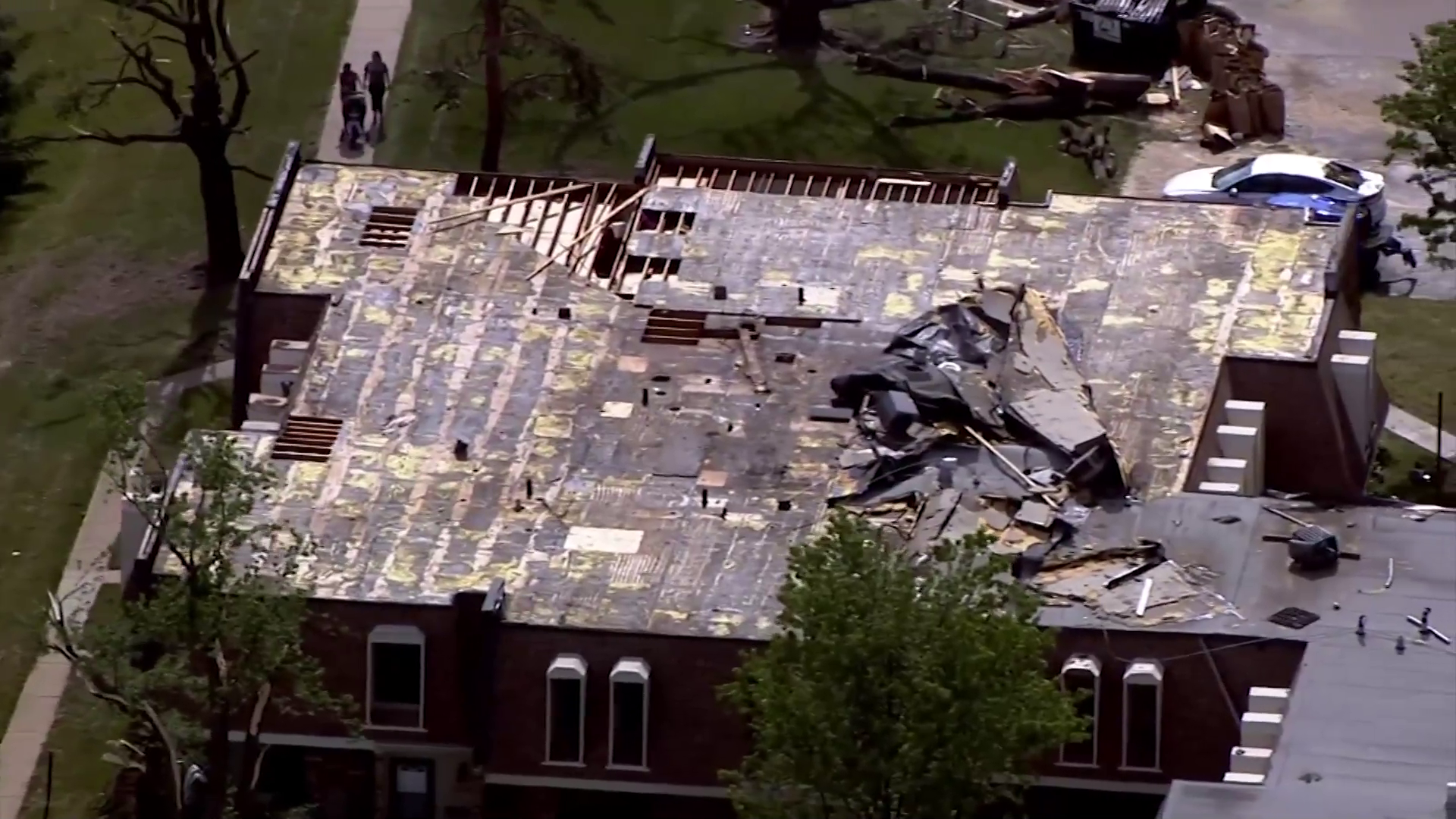It was three years ago when a devastating EF-3 tornado struck southwest suburban Woodridge, leaving hundreds of homes damaged and dozens of lives upended.
Many of those who lived in the Woodridge Country Club Condominiums still can't access their homes due to monumental delays in repairs, previously reported by NBC 5 Responds.
Part of the delay is due to a nearly $1 million insurance gap that the displaced residents will now need to come up with in order to move home.
"I’m lost. I’m totally lost," homeowner Maria Rivas told NBC Chicago. "I live from suitcase to suitcase, place to place... You’re still paying additional living expenses, you’re still paying your mortgage, still paying your association fees, and you’re still paying your taxes. And I’m not even allowed to live in my place yet.”
Her insurance policy helped out with additional living costs for up to two years, but it has since ran out. Rivas said her faith and her community have kept her going through the difficult time.
On Wednesday, that community gathered for a fundraiser to help close the insurance gap for approximately 20 homeowners who are left in Rivas' situation.
"Tonight is all about being good neighbors," Woodridge Mayor Gina Cunningham said. "I don’t know if any of us can actually imagine being out of our homes for three years but being responsible to pay our mortgage our monthly assessment and rent on top of it."
Cunningham founded Woodridge Neighbors Helping Neighbors Disaster Recovery (WNHNDR) a 501(c)(3) nonprofit aimed at helping these residents.
"We’ve been giving them gift cards, food and support," co-chair Glenn Mazade said.
Feeling out of the loop? We'll catch you up on the Chicago news you need to know. Sign up for the weekly Chicago Catch-Up newsletter here.
Wednesday's fundraiser included t-shirt sales, auction items and performances to help raise awareness and funds for their neighbors.
"Folks here are emotionally, financially and some even spiritually drained," Dianne O'Donnell, co-chair of WNHNDR said. "They've been through a lot, so we do what we can to help them know they haven't been forgotten."



